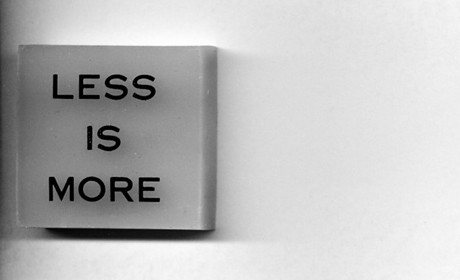
A simple site or app is more effective when it comes to mobile than more complicated offerings, the chief digital officer of US publisher Gannett said at a conference today.
David Payne gave the keynote presentation at Mobile Media Strategies, a two-day conference taking place in London.
He used the speech to point out that "less is more" when it comes to mobile and shared lessons in mobile monetisation strategies from Gannett, which owns USA Today, a range of local newspapers and TV stations in the US, and Newsquest in the UK.
'Banner advertising is not the solution'
Rather than seeing a future in making money from banner adverts on mobile, Gannett is looking to media giants such as Facebook and Instagram for inspiration.
He said publishers, including Gannett, have tried to apply the web advertising model, which, he added, "you could say is a failed model".
There are more click-throughs to banner ads on mobile – but that is mostly people clicking in error due to the smaller screen size, he said.
Looking to popular apps
Payne explained that newspaper businesses, such as 106-year-old Gannett, have always been good at creating habitual behaviours. And now there is a new habitual behaviour: people checking their smartphones many times a day.
Gannett ran a test internally and asked mobile developers what they would use their phone to check if they had just 30 seconds.
The answers included looking at Twitter and Instagram, with just one person checking news.
Gannett then looked at what these apps have in common. They provide "constant stimulation", they are "ephemeral", they may be "voyeuristic" and are sometimes "artistic", Payne explained.
The apps invoke a sense of "fun", and some offer a "sense of completion" as people seek to respond to and eliminate red notification symbols. The successful apps allow people to "discover new" facts, such as stories appearing in a Facebook feed. The test also found that people liked the sense of being "done", giving examples of apps which "grey out" stories once they are read.
Less is more
Mobile apps often try to do too many things at once, Payne pointed out. Instead publishers should look to the new media giants. "Taking cues from Facebook is probably a decent idea,” he said.
"Advertising is a part of, not apart from, the Facebook experience," he pointed out.
Facebook advertising appears in users' news feeds. "We know it is advertising but it is integrated," he said, adding that video ads are on the way from Facebook.
Native advertising
One of the ways publishers should be looking to monetise on mobile is native advertising, Payne said. In the same way that Facebook advertising runs in the news feed, so too does native advertising, which has led to profitability for Buzzfeed.
With mobile, this "seamless experience" is going to be the key to monetisation, said Payne.
Integration in the operating system
Another monetisation strategy being used by Gannett is integration within the mobile device's operating system. Payne showed a full page ad in an iPad app that allows users to click and add an event to their calendar in one touch.
Mobile users do not like to click and leave an app or a website on mobile, they want an integrated experience, he explained.
There is also potential for location-based adverts and transactional ads, where people transact business without leaving the application. Payne said publishers should try to "bake in all of the functionality so people don’t have to leave" the app or website.
Future monetisation on mobile
Looking to the future, Payne offered a couple of predictions.
He said that consumers all have different values to marketers and advertisers at different times, so publishers need to look at personalising the ad offering.
He also predicted another advertising strategy, one "which could be the most interesting". He said he believes Jeff Bezos, the Amazon founder who recently bought the Washington Post, will deploy "a hardware/software model". Payne thinks publishers should look at giving away the hardware, whether an Android phone or Amazon Kindle, in exchange for a subscription to the software, which in the case of newspaper companies is digital news content.
Free daily newsletter
If you like our news and feature articles, you can sign up to receive our free daily (Mon-Fri) email newsletter (mobile friendly).











